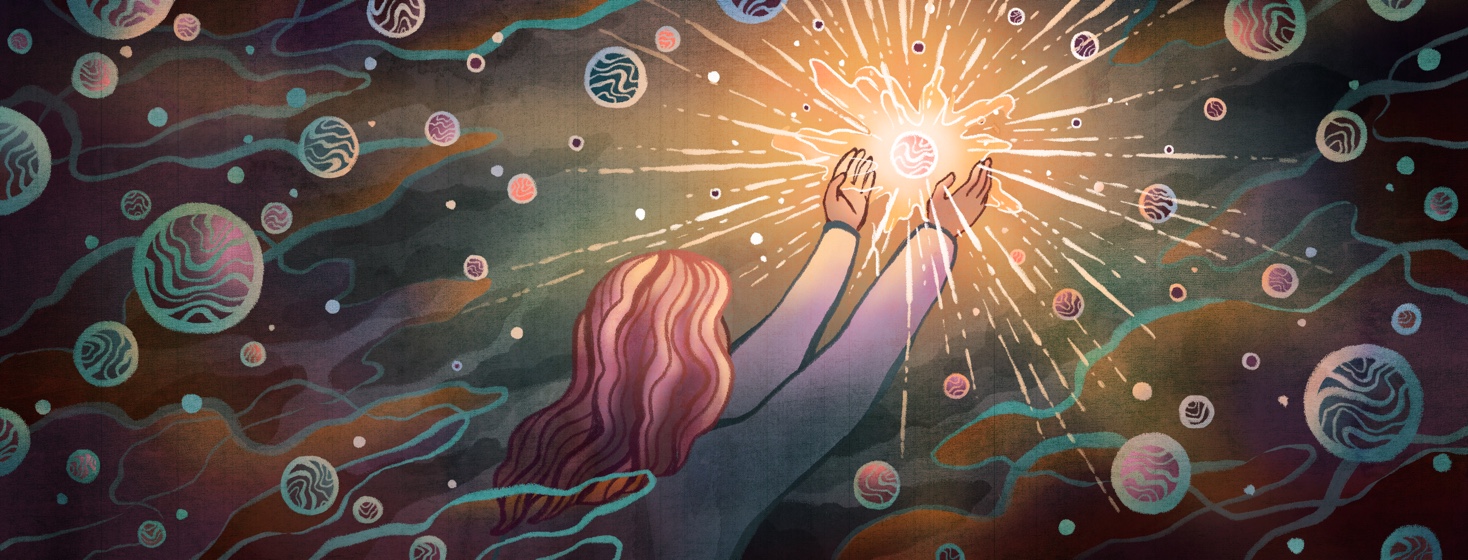8 Ways I've Learned to Cope with the Trauma of a Late-Stage Cancer Diagnosis
Being a cancer patient is difficult, and I would argue that being a young adult cancer patient is infinitely more difficult. I went from being a normal, totally healthy 29-year old to being diagnosed with metastatic melanoma in a matter of weeks. The scans that I joked about being a very expensive inconvenience soon told me the truth I was very unprepared to hear.
My metastatic melanoma diagnosis
Typically a cancer diagnosis comes with some sort of immediate treatment plan. For me, I had already scheduled the stereotactic radio-surgery procedure of my brain before I even had a tissue biopsy to verify metastatic melanoma. The PET scan that lit up in several places, a brain MRI with a solid mass, and a history of melanoma was enough to convince my medical team we were dealing with something very serious.
My doctors and medical team spent a great deal of time explaining the potential side effects of my treatment. They tried so hard to prepare me for the storm I was being forcefully thrown into. While it was immensely helpful to know what to expect, we neglected to discuss the mental side effects of a late-stage cancer diagnosis. I think this is often (unfortunately) an afterthought when it comes to cancer treatment. It wasn’t until I was nearly a year into treatment when my mind sort of caught up with everything that was happening.
The physical and emotion struggle
Once a very passionate, energetic person, I now found myself searching for things to care about and fighting the urge to take a nap (always). Fatigue was a side effect of my treatment, but I’m fairly certain going through day-to-day like a zombie, was not. There was a solid 6 weeks or so where I felt like I could burst into tears at any given moment. Sort of like my emotional capacity was completely spent. I was physically exhausted, emotionally exhausted, and sick and tired of being tired!
8 ways to deal with a metastatic melanoma diagnosis
Let me tell you, it’s been one heck of a process to figure out and work through the mental trauma of a late-stage melanoma diagnosis. I wanted to share some of the ways I’ve learned to process being a metastatic melanoma survivor.
1. Feel your emotions
Some days you might be having a not-so-great day, and that's 100% OKAY! I’ve learned that suppressing my emotions only causes them to be 10 times worse when they finally surface. If you let yourself feel through your emotions, they tend to pass a little quicker. Don’t dwell by any means, but recognize how you’re feeling and why you’re feeling that way and let yourself move through those feelings.
2. Don’t be afraid to let your mind wander
You’ll likely run into a “what if” type of thoughts. Let yourself travel down that thought path. Assess the threat, determine the likelihood of it actually happening, and let your mind develop a plan. Don’t spend unlimited time in “what if” world, but I’ve learned that it helps to eliminate the fear of the unknown if you make it known.
3. Find a support system
You can’t do it alone, no matter how independent you think you are. I’ve always considered myself a very independent person and I hated relying on other people. I found myself physically and emotionally incapable of doing certain things while going through active treatment. Find yourself a support system and let them help you.
4. Develop a toolbox
This was something that became very important to me. There isn’t one single thing to help you cope with a cancer diagnosis. For me, it was a combination of therapy, a low-dose antidepressant, an activity log, and journaling. I started three different types of gratitude journals before I found a method that worked for me. Each person’s tool kit is different, so find what works for you.
5. Have patience for yourself
Physically and mentally, you’re going through a lot. Have some patience and compassion for yourself and recognize that. Give yourself some overdue credit for all the things you’re doing and going through. This continues to be the biggest obstacle for me. I have a very high standard for myself, and I’ve had to reset my expectations and improve my self-love. I started an activity log to document all the things I was doing and to help me visualize it.
6. Don’t compare yourself to other cancer patients
Every. Single. Person. Is. Different. Every diagnosis is different and every response to treatment is different. Finding people going through similar things might help you not feel so alone, but don’t compare your diagnosis or prognosis.
7. Set your boundaries
This is oh, so important. Your cancer story is as public or private as you want it to be. You get to determine what pieces of information you share and who you share it with. Be mindful that the more you put information out there, you’re giving others permission to probe you for progress updates.
8. Try new things to find gratitude
It doesn’t really matter what it is, but trying new things allows you to be present in the moment. It forces you to be hyper-aware and appreciate the things around you. I found this technique especially helpful leading up to scan days.
So, tell me! How have you learned to cope with a cancer diagnosis? What information do you wish your medical team would have shared with you during your diagnosis? How do you process and cope with all your emotions?

Join the conversation